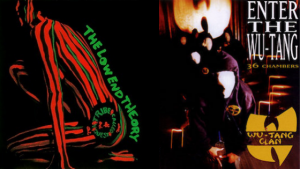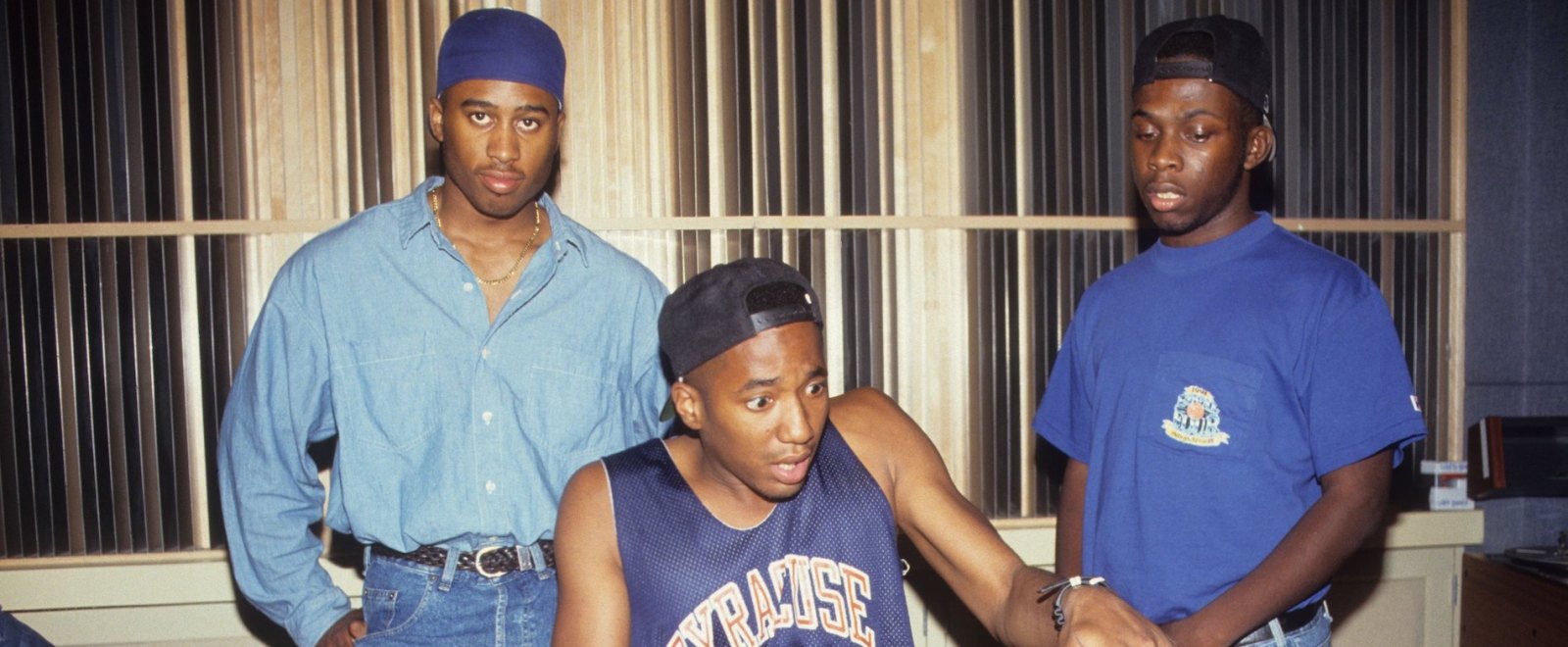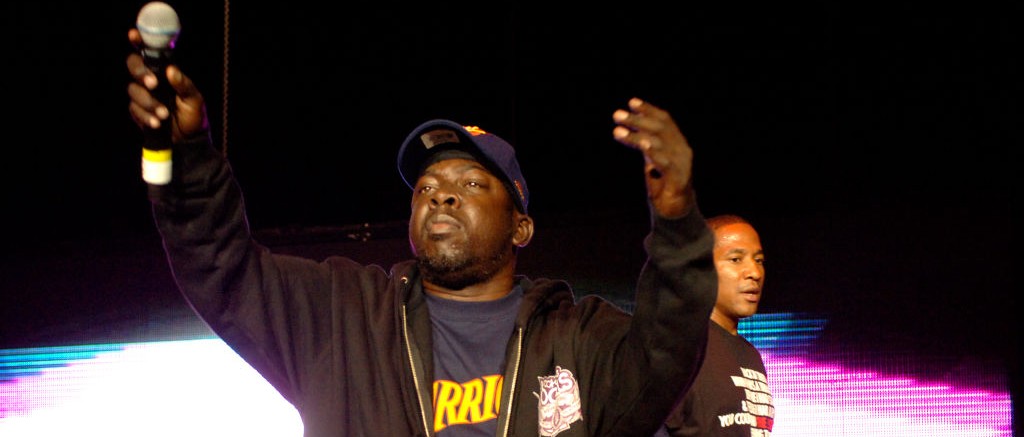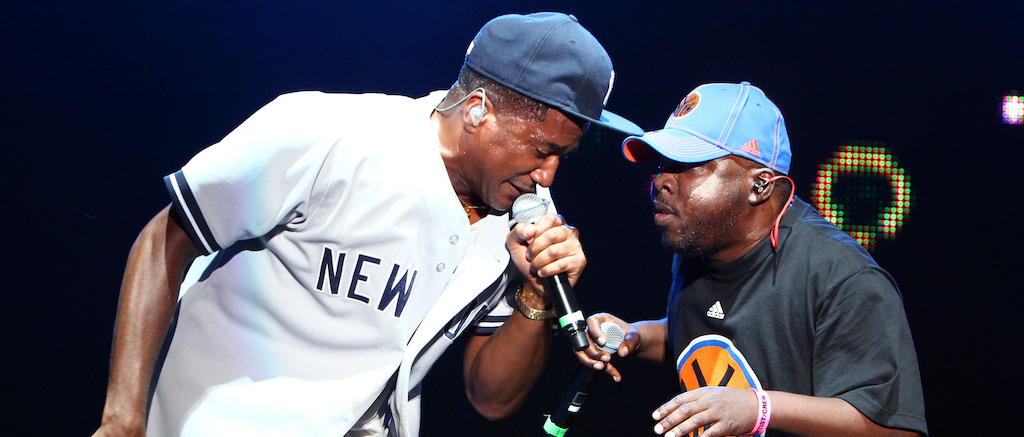
Despite The Notorious B.I.G. rapping “you never thought that hip-hop would take it his far” on his 1994 breakout single “Juicy,” even he might have been shocked to see just how far the genre has come since then if we were still around. After all, when he wrote that line, the genre had only been around for around twenty years, going by the widely accepted “birthday” of August 11, 1973. For much of that time, hip-hop was seen as a passing fad, a little like its immediate predecessor disco.
But here we are, coming up on hip-hop’s 50th anniversary. The culture and the music both look way different than they did when they started, even factoring in the 20-year fashion cycle. One thing that can’t be denied, though, is that hip-hop underwent some of its biggest stylistic evolutions and innovations during the ’90s when people finally began to realize that this “fad” might be here to stay. And while things have changed a lot, many of those innovations remain the bedrock upon which almost all future offshoots of hip-hop are based.
While there have been multiple generations born into a world where hip-hop has always been part of pop culture, those generations often find themselves at odds because as new fans are born every day — literally or figuratively — they often come into those discussions missing valuable context about the roots and history of the music both sides love so much. Rather than shooing these newcomers out the proverbial gates, why don’t we welcome them in?
Being a good citizen starts with a good education, and since it’s hard to know where to start with the hip-hop canon, we wanted to give the kids (and new hip-hop fans of all ages) a primer on some of the most groundbreaking and important rap albums of the ’90s. By no means is this list comprehensive or complete — that’d be borderline impossible without turning it into a book instead — but these albums have contributed to a canon that has turned out to be dynamic, inclusive, and at times borderline ridiculous. You might see some familiar favorites or even a few unexpected additions, but they all form part of hip-hop’s beloved and elaborate tapestry.
(P.S. In case it’s not immediately obvious, this list is in alphabetical order. Please don’t mistake this for a ranking and yell at me for putting MC Lyte “above” Tupac or something stupid like that.)
8Ball & MJG — Comin’ Out Hard
You might be surprised to see the 1993 debut album from the Memphis duo here, but one listen to the title track will almost certainly call to mind the groovy style still in use today by the likes of Curren$y, Denzel Curry, Joey Badass, Larry June, Le$, and more.
A Tribe Called Quest — Midnight Marauders
As the debate between which Tribe album, 1991’s Low End Theory or 1993’s Midnight Marauders, holds more weight in the Queens crew’s canon, there’s simply no denying that the latter saw them at the height of their powers, standing toe-to-toe with gigantic contemporaries as the standard-bearers for so-called “alternative hip-hop” on the radio and at MTV.
Black Star — Mos Def & Talib Kweli Are…
When you think of modern “conscious rap” today, nearly every practitioner of the form comes from the lineage of this culture defining album.
Da Brat — Funkdafied
She may have been a gender-flipped Snoop Dogg clone on her 1994 debut, but she was the first female solo rap act to receive a platinum certification, opening the door for the sisterhood to follow. She proved women could be commercially viable — and inadvertently opened the door for queer representation in hip-hop, even if it took 25 years for her to openly admit her sexuality.
De La Soul — Stakes Is High
De La Soul’s discography is one of the heartiest in hip-hop history — and the hardest to hear — but their 1996 album remains a high watermark as an exemplar of the then-burgeoning underground movement against hip-hop’s growing commercialism.
E-40 — In A Major Way
Aside from being one of hip-hop’s longest-tenured pioneers to retain a foothold on contemporary tastes, E-40 is also one of its foremost businessmen. He showed rappers how to grind independently without label backing; in addition, the stripped-down production of his early Bay Area projects has come to define the sound of many modern rising rappers, from Southern California to Detroit.
Freestyle Fellowship — Innercity Griots
The criminally overlooked Los Angeles collective might not be a household name, but their jazz-influenced, freeform take on the genre had a lasting impact on alternative rap, from their contemporaries like Pharcyde to modern-day descendants such as Kendrick Lamar. Their 1993 sophomore album took a quantum leap in innovation from their 1991 debut To Whom It May Concern…
Lauryn Hill — The Miseducation Of Lauryn Hill
20 years later, the argument about whether Ms. Hill’s 1998 solo debut belongs in the rap category or the R&B one continues. But one thing is for certain: it’s the blueprint on which dozens of future stars’ albums are built.
Lil Kim — Hardcore
Let’s put it this way: If you like pretty much any female rapper in 2022, there’s a 99 percent chance there’s some Lil Kim in her stylistic DNA. From Nicki Minaj to Cardi B and all their flourishing progeny, Lil Kim is the godmother of them all, bringing unabashed sex appeal, unfiltered raunchiness, and high fashion sensibilities to gritty, mafioso-style rap. It all started here in 1997.
MC Lyte — Bad As I Wanna Be
Without MC Lyte, there wouldn’t be a Lauryn Hill — or a Rapsody, Blimes & Gab, or dozens of other flow-forward women in rap who earned the respect of the fellas while holding it down for the ladies.
Missy Elliott — Supa Dupa Fly
Futuristic, funky, and fun; Missy Elliott’s debut album brought a completely unique perspective to the rap world in 1997. It’s been discussed before but it can never be overstated: Hip-hop has never seen an artist like Missy and it might never do so again. Supa Dupa Fly reintroduced the world to the Virginia native’s golden pen and her industry-defining partnership with Timbaland.
Mobb Deep — The Infamous
Let’s say you really love the menacing, blunt street rap from acts like Griselda rappers Benny The Butcher and Mach-Hommy. You owe a debt to Mobb Deep’s 1995 sophomore release. Leaps and bounds beyond their ’93 debut Juvenile Hell, The Infamous practically created a subgenre in itself — one that remains darkly alluring to all kinds of hip-hop fans from the rugged ghettos depicted here to the desk jockeys bumping Freddie Gibbs in their Priuses before clocking in for a hard day of accounting.
Nas — Illmatic
Look, man. This album could never be considered overrated for the fact that Nas still has a career after I Am… and Nastradamus sheerly because hip-hop fans felt in their bones that he had the potential to match this. He hasn’t yet, but he’s gotten closer than he has in years thanks to Hit-Boy. Still, a gold standard debut that I’ve taken to using for anyone who overachieves their first time at anything (see also: Jordan Peele).
The Notorious B.I.G. — Ready To Die
Another pick so obvious, you almost want to skip it, but know you couldn’t, because there are some sacred cows you just leave alone. Origin of the above-mentioned awed line, Ready To Die is so meaningful perhaps mostly because it kicked off the so-called “jiggy era.” It had glitzy production, flashier presentation, and oh yeah, it pretty much gave Puff Daddy free license for the next 25+ years of shenanigans.
Outkast — Aquemini
Give Outkast credit for elevating (heh) so much three albums into their careers. In 1998, they could have rested on their laurels. ATLiens had reversed hip-hop’s view of Southern rap, set them apart from almost everything else out, and justified Andre 3000’s Source Awards declaration that “the Souf got sum to say.” Then, they went to another dimension, crafting a trippy, P-funk-inspired excursion beyond the boundaries of contemporary hip-hop sound. This is when Outkast really started to become Outkast.
The Roots — Things Fall Apart
I will admit some bias here; “You Got Me” was my favorite song when it came out in 1999, and completely changed my perspective of what hip-hop could be. Apparently, it did so for plenty of others, as well; “You Got Me” won the Grammy Award for Best Rap Performance by a Duo or Group in 2000, legitimizing alternative hip-hop in the eyes of the wider musical establishment once and for all. This one is 90 percent of the reason Questlove’s opinions hold so much weight.
Snoop Dogg — Doggystyle
In 1993, all eyes were on Snoop after his breakout appearance on Dr. Dre’s The Chronic two years before. He knocked it out of the park, becoming a nigh-ubiquitous figure in American pop culture seemingly overnight. What’s impressive is that his current persona is almost night and day with the rambunctious young adult who detailed his life of pimping, gangbanging, and being the biggest dog on the block.
Three 6 Mafia — Mystic Styles
You can’t listen to the Memphis group’s 1993 debut without instantly hearing so many of the musical elements that define modern rap: the trunk thump, the skittering snares, and the pitter-pat rap cadence that can be heard in the flows of artists from ASAP Rocky to Megan Thee Stallion — to say nothing of a swarm of the Mafia’s successors in the Memphis scene like Yo Gotti, Moneybagg Yo, Duke Deuce, and more.
Tupac — All Eyez On Me
“He runnin’ around like he ‘Pac.” When Kanye said that, he was referring to this 1996 version of Tupac Shakur (there are so many, after all): The swaggering, thugged-out, and increasingly paranoid superstar Tupac became between his release from prison and his fatal shooting seven months after the album’s release. Was its impact inflated a bit by that latter fact? The world may never know, but for a time, Tupac seemed invincible and this album is a huge part of the reason why — and why so many rappers still mimic ’96 Pac’s persona to this day.
UGK — Ridin’ Dirty
You just can’t talk about Southern hip-hop without talking about Houston. This 1996 album is a large part of the reason why. While the city had a flourishing hip-hop scene of its own before this, Ridin’ Dirty demonstrated just how influential that scene could be. Its impact reverberated through 2005’s Houston breakout, which in turn informed a last genre-wide infatuation with chopped and screwed beats. Arguably it all started here, with the duo’s best-selling album — a status it acquired with no official singles and minimal label promotion.
Wu-Tang Clan — Enter The Wu-Tang (36 Chambers)
If you ever “Shimmy Shimmy Ya’d” or if your favorite rapper rhymes incessantly about anime, thank these guys for breaking down the door. They also set the precedent for massive super crews like Raider Klan, Beast Coast, Odd Future, and Brockhampton, created the blueprint for Kanye’s chipmunk-soul production style, and spawned a veritable family tree of acolytes, associates, imitators, and literal offspring that continues to expand throughout the world of hip-hop.
Some artists covered here are Warner Music artists. Uproxx is an independent subsidiary of Warner Music Group.







